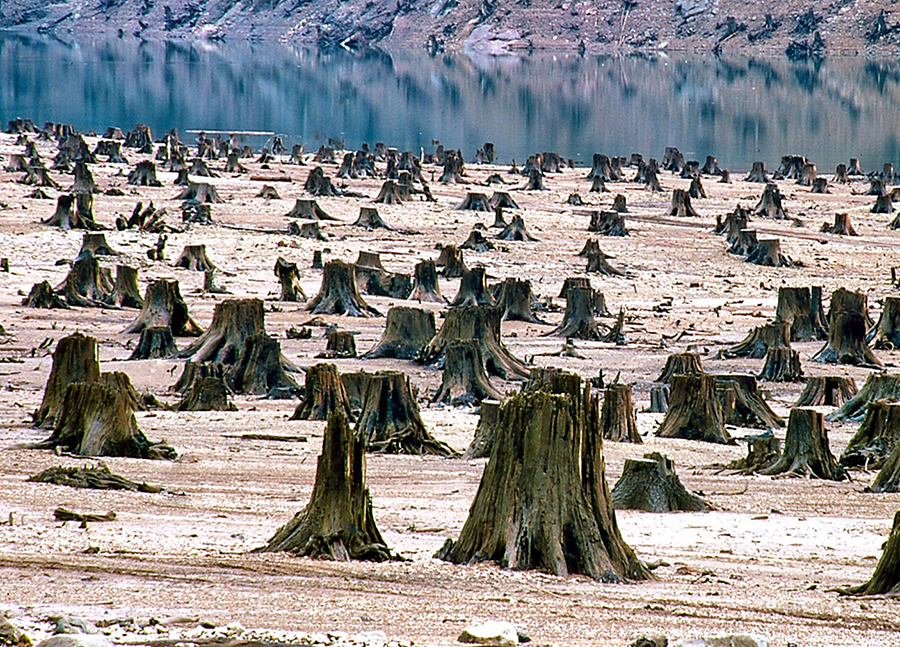Third Sunday in Lent, Gospel, Year C
FRUITFUL TREES
Luke 13:1-9
Third Sunday in Lent
Analysis by Peter Keyel
1 At that very time there were some present who told him about the Galileans whose blood Pilate had mingled with their sacrifices. 2 He asked them, “Do you think that because these Galileans suffered in this way they were worse sinners than all other Galileans? 3 No, I tell you; but unless you repent, you will all perish as they did. 4 Or those eighteen who were killed when the tower of Siloam fell on them—do you think that they were worse offenders than all the others living in Jerusalem? 5 No, I tell you; but unless you repent, you will all perish just as they did.”
6 Then he told this parable: “A man had a fig tree planted in his vineyard; and he came looking for fruit on it and found none. 7 So he said to the gardener, ‘See here! For three years I have come looking for fruit on this fig tree, and still I find none. Cut it down! Why should it be wasting the soil?’ 8 He replied, ‘Sir, let it alone for one more year, until I dig around it and put manure on it. 9 If it bears fruit next year, well and good; but if not, you can cut it down.’”
DIAGNOSIS: Fruitless Trees
Step 1: Initial Diagnosis (External Problem): Bad Things Happening
Some people suffer. We don’t like that and we want to know why people suffer. If God is in control, God chooses who suffers and who doesn’t. That suggests God has a fair method for making that decision… call it God’s Law.
Step 2: Advanced Diagnosis (Internal Problem): Sinners
But is God’s Law fair? If it is fair, that means people get what they deserve, and those who suffer must have had it coming. Yet, Jesus explicitly refutes this idea and explains why: it’s worse for all of us because none of us are trees bearing fruit. That’s a problem for us because it puts us in the same boat as those “worse” sinners who are suffering more. Jesus claims we’re all a bunch of sinners in need of repentance.
Step 3: Final Diagnosis (Eternal Problem): Perish
Jesus’ conclusion is grim: Repent or perish. We don’t like that bad news, so we kill Jesus for suggesting it. The problem is that the vineyard owner’s decision is the same, but applied to us: “Cut it down” is the judgment for us trees wasting the soil. There isn’t much we can do. After all, trees can’t just decide to spontaneously fruit; they need the right conditions. In the wrong conditions, they will never fruit.
PROGNOSIS: Fruitful Trees

Step 4: Initial Prognosis (Eternal Solution): Live
Although we killed the messenger, it was not enough to stop God’s plan. The final word for fruitless trees is not “cut it down,” but “let it alone” and let the Gardener fix it. Jesus the Gardener does so, starting with his resurrection and promise of new life for fruitless trees. The tree may not be able to create the conditions needed to bear fruit, but Jesus can create those conditions and does so.
Step 5: Advanced Prognosis (Internal Solution): Faithful
Jesus creates the conditions needed for us trees to bear fruit by digging around our hearts and fertilizing them with faith. Faith is the good work Jesus does in us, and that will enable us to bear good fruit and repentance. Our identity is no longer “sinner,” but forgiven.
Step 6: Final Prognosis (External Solution): Good Things Happening
Faith changes our focus. We trust that God is in control, and that God has chosen us to help relieve suffering in the world and bring about good things. God’s method of working in the world is mercy, and it is intended for all of us.
